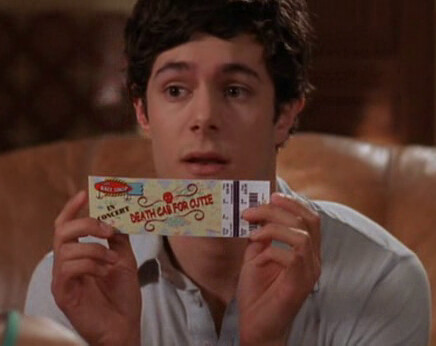Living in Columbia, you get used to being a few years behind the trends that sweep bigger cities up North or out West before filtering down to the sleepy South. However, Apple's iPod has permeated tech-savvy America's consciousness so thoroughly that the device's trademark white earbuds are a recognizable commodity among those in the know even in South Carolina's capital city.
In the same way Sony's Walkman revolutionized the way people interact with their music away from car stereos and home hi-fi sets, the iPod has made it easier than ever to carry an entire collection of digital music in your back pocket. This, in turn, has paved the way for enterprising music lovers to share more of the tunes they loved with others - a fad called "iPod jacking" found users of the ubiquitous player plugging into another's device to sample whatever they might be playing, revealing something about the owner's personality and perhaps introducing the listener to something new.
Apple has sold nearly 15 million of the little white and silver digital music players and made enough of an impact on popular culture that Forbes magazine recently called it "a true cultural and social phenomenon" because of the product's influence on people's behavior and even on business through the countless accessories the iPod has spawned.
It's no small wonder then that having thousands of songs at your fingertips (an estimated 5000 can fit on the 20 gigabyte model) would mean iPod owners would eventually get together to play music for one another. New York DJs realized that instead of lugging around heavy and cumbersome crates of records, they could simply take an iPod or laptop and run it through a digital mixer, letting them carry a broader selection of music with less hassle. Some venues in the Big Apple and similarly progressive cities let patrons bring in their own iPods to take turns playing the music.
While Columbia certainly lacks some of the cultural variety found in bigger towns, the presence of USC means there is a constant influx of new ideas from all over the nation and the world rotating in and out of our city. Combine the forward-thinking sensibilities of a university town with USC's own source for independent music, WUSC, and you have a critical mass for musical experimentation.
Former WUSC Public Affairs Director Ashley Solesbee saw a perfect opportunity to try something new when her summer employers at the Art Bar in the Vista challenged her to find a way to boost Friday sales. With the help of WUSC alum Peter Adolphson, who recently returned from law school in New York, Solesbee has helped to launch iPop, Columbia's first sustained effort at iPod-based DJ'ing.
Adolphson said that following 9/11, the New York club scene changed profoundly as traditional techno-based venues closed, and the revival of 1980s New Wave-based indie music found its way into hipster joints. Bringing the idea of digital DJ'ing back to Columbia with him from New York, Adolphson did a brief stint at Rust, whose regular crowd was less than amiable to the variety of music he plays than the diverse one that populates Art Bar on a given weekend.
"The thing we liked about (the name) iPop is how huge iPods are now," she said. She also said past efforts to do iPod DJ'ing in Columbia had failed because of a lack of promotion, which iPop is avoiding with the help of its own MySpace site and individual promotion of each week's event.
Adolphson does "a dance-rock format. He's very talented and puts lots of effort into it," Solesbee said.
Cross-promoting his iPop appearances through his Friday alumni show on WUSC, Adolphson said "we're not afraid to play 80s songs" along with current music, and the ultimate goal is to "play music that people don't normally hear in Columbia." For now, the goal is to bring in a solid base of WUSC listeners, eventually expanding the audience by influx of students for fall semester.
Though Adolphson has exclusively handled the DJ'ing duties, the plan is to "expand it to other WUSC DJ's," said Adolphson.




